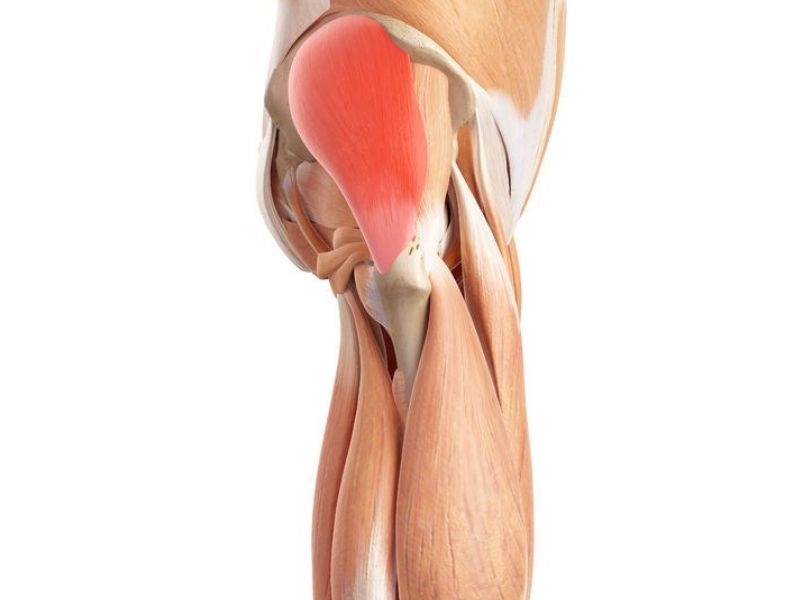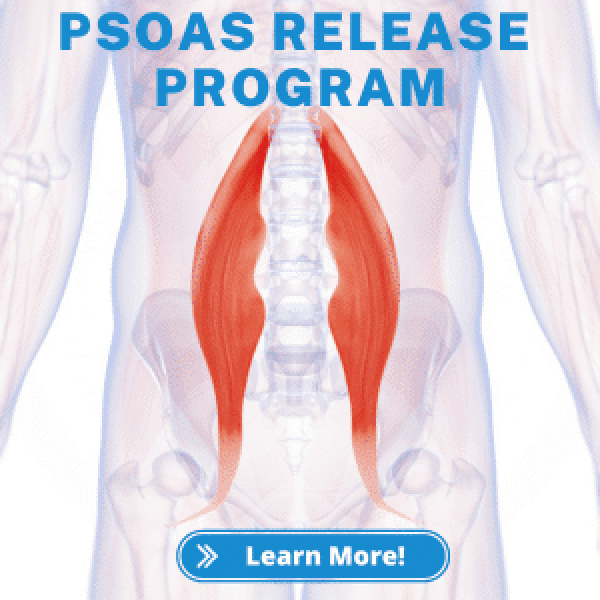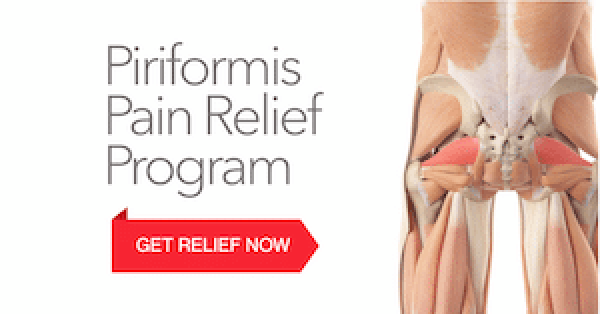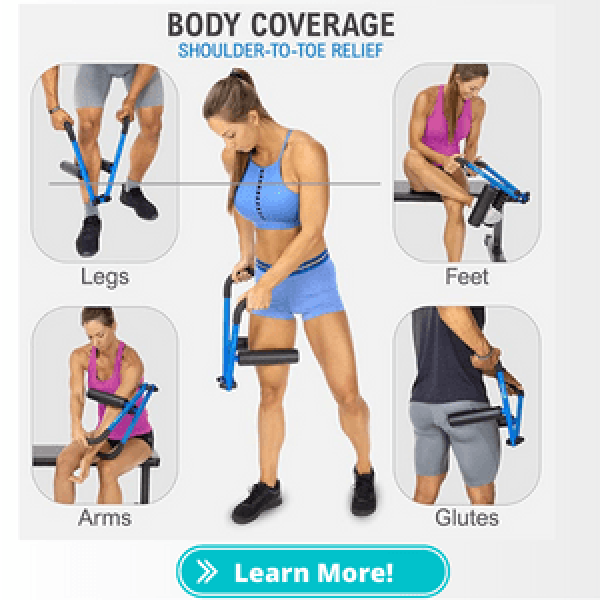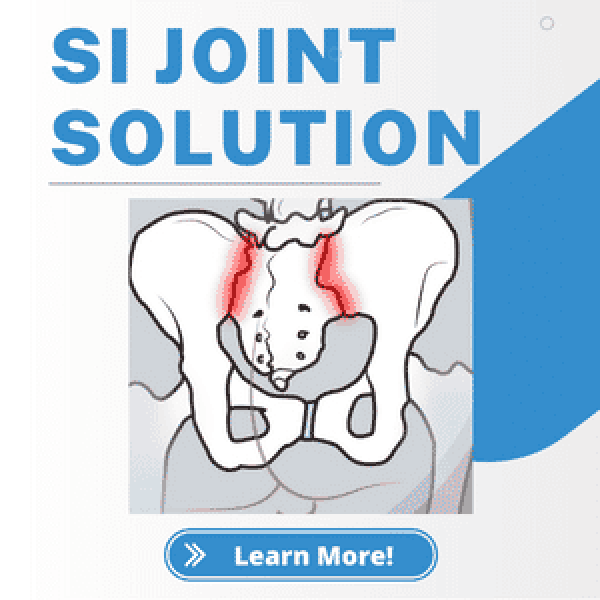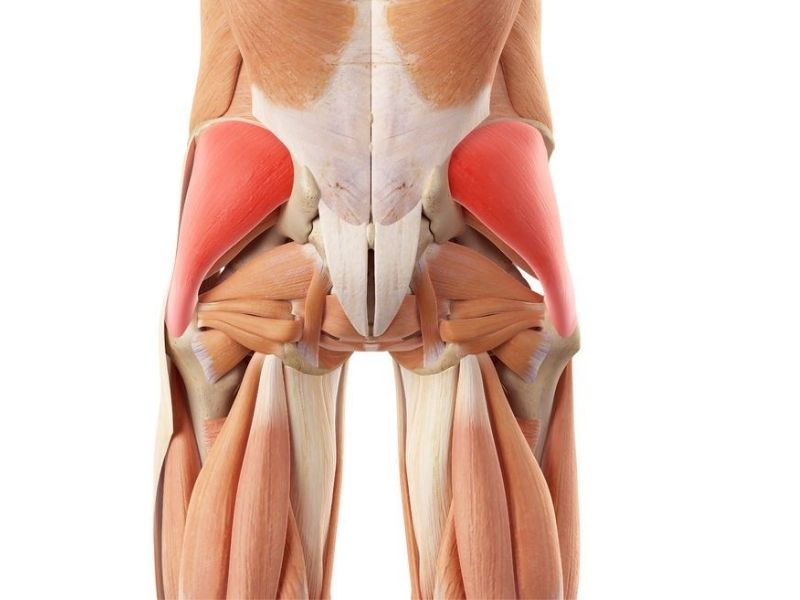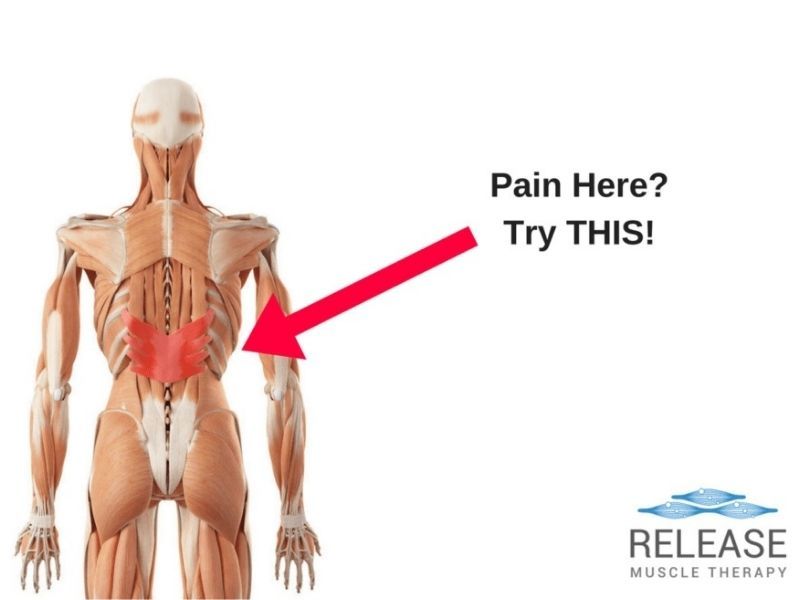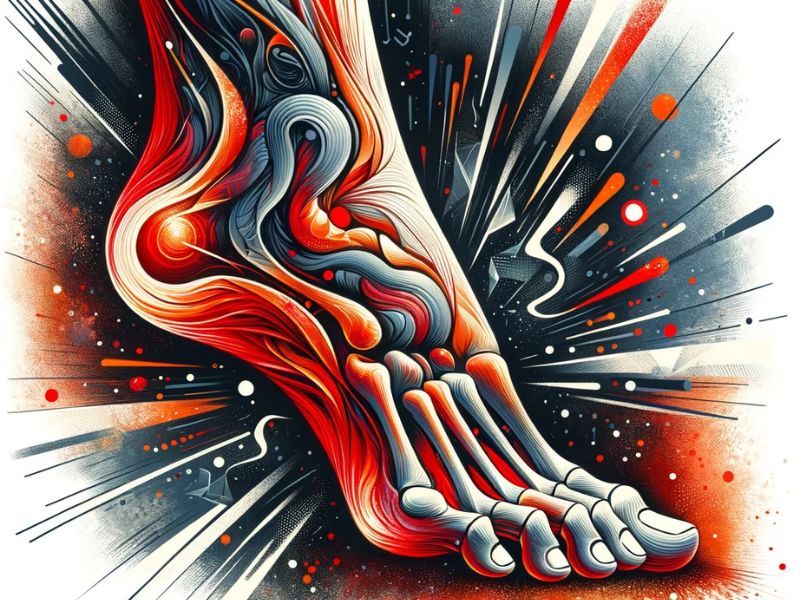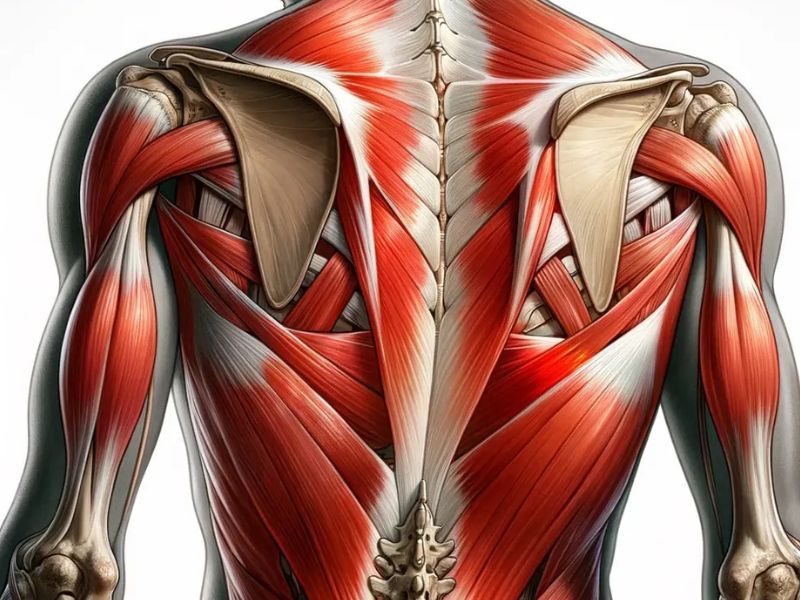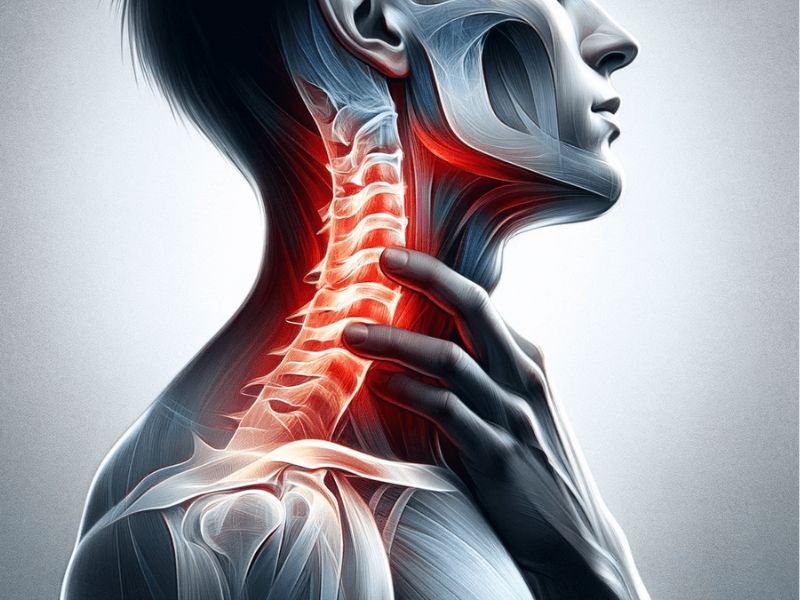The Top 3 Techniques For Quadratus Lumborum Release
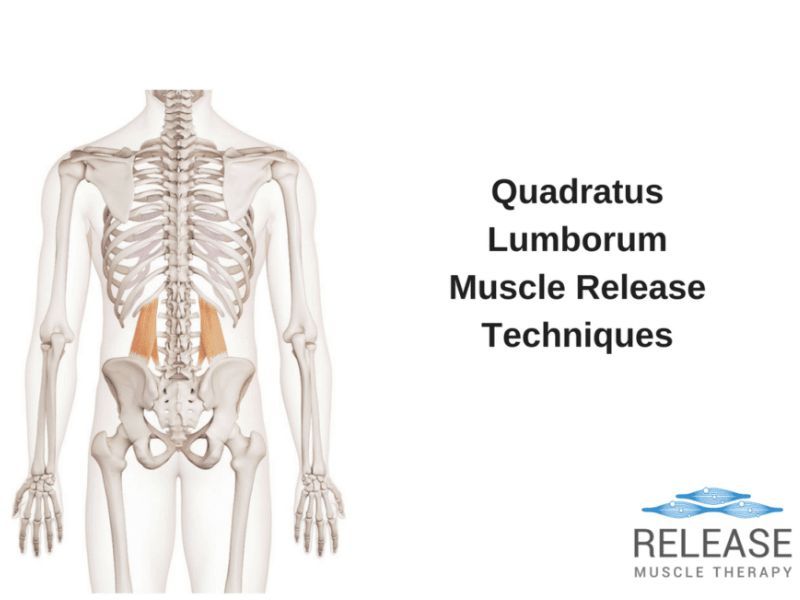
The quadratus lumborum muscle (QL) is located in the lower back on both sides of the spine. Due to its attachments and actions on the spine, the QL is often associated with conditions of lower back, pelvis, and hip pain.
If during pelvic assessment a hip-hike and/or excessive anterior pelvic tilt is found, then targeted quadratus lumborum release techniques can be applied.
Due to the overlapping actions of the QL muscle with the spinal extensor muscles, they should all be addressed together for optimal results.
How to know if you need QL muscle release:
- Lower back pain
- Sacroiliac joint pain
- Hip pain
- Excess anterior pelvic tilt
- Short leg
Quadratus Lumborum Trigger Points

Trigger points are very commonly found in the QL muscles. They frequently refer sensation down to the SI joint region, as well as into the upper glutes.
The most frequent trigger point locations are at the transverse processes of the lumbar vertebrae, the 12th rib attachment, and at the insertion on the iliac crest of the pelvis.
QL Muscle Massage Therapy
The QL muscle is fairly deep but can be accessed just to the side of the long spinal erectors. Due to all the attachments on the ribs, pelvis, and spine, its important to perform QL massage glides in upward and downward strokes, as well as compress the attachment points directly to cover the muscle thoroughly.
An important note when performing massage in this area is to be mindful of the 12th rib, which is known as a “floating rib” and may be injured as a result of excessive force. Never press directly into it with an elbow!
After massage therapy, its recommended to add a frequent QL muscle stretch in order to get the work to “stick”.
Quadratus Lumborum Release – Post Isometric Relaxation Technique
The QL is a side a side-bending and hip-hiking muscle. Post isometric relaxation technique can be done in the side-lying position with light resistance applied to the top of the hip or pelvis.
Since this position can feel slightly threatening to someone experiencing lower back pain or discomfort, it’s advised to only move slightly into the position of stretch, just up to the point where the person feels comfortable.
Once the position is attained, as mentioned in the video, only a 5-10% effort should be exerted by the QL muscle while breathing in. As the exhale and relaxation occurs, only take the stretch again to a point of comfort and repeat.
QL Self Massage Release – Theracane
The Theracane is a great tool for quadratus lumborum self massage and for reaching other back muscles. The knob on the curved end is perfect for reaching trigger points in this area.
When performing this technique, just like any other QL release, avoid using excessive pressure. I only recommend using 5/10 intensity, which means about 50% of a pressure you can tolerate maximally. You should be able to comfortably hold the pressure without holding your breath or having your arms fatigue for up to 30 seconds.
Be especially careful about NOT compressing the 12th rib!
Quadratus Lumborum – Side Stretch Over Ball
A quadratus lumborum stretch can be attained by laying over a swiss ball. When in this position, deep breathing is essential to influence the muscle due to its lower rib attachments. Additionally, since the muscle fibers go in slightly different angles, it’s best to move your upper body slightly forward, backward, and also position your body more or less over the ball to address all the possible fibers you can get to.
The quadratus lumborum is an important muscle to address in a multitude of issues involving the lower back, pelvis and hips, but it’s also important to keep in mind it should always be addressed in the context of an overall therapeutic program. Quadratus lumborum release should not be the sole focus!
No muscle works by itself, and frequently, muscles that appear short, tight and even painful may simply be compensating for another muscle/group that may in fact be the actual underlying problem.
Sam Visnic
I’ve spent my life studying the fundamental aspects of human health with a focus on movement and clinical massage therapy. In a world of specialists, surgical procedures, drugs and quick fix remedies, I’m committed to finding and developing strategies that help people stuck at the “gap”. Over the last 20 years I’ve studied dozens of systems and methodologies for uncovering the root cause of aches and pains, along with postural and movement issues. Pain science, the art and science of hands-on soft tissue massage techniques, myofascial release, and coaching movement is essential in my practice. Integrating different methods but above all deciphering WHEN to use different techniques with different people and situations, along with integration of movements that people want to be able to do again is the key to long term success with my incredible track record with clients. Understanding the various elements that contribute to conditions and the power of communication and education makes my Release Muscle Therapy program separate from other hands-on therapy approaches.
Blogs You May Be Interested In
Categories
-
Deep Gluteal Pain Syndrome
-
Deltoids
-
Fallbrook
-
Foam Rolling
-
Glutes
-
Hamstrings
-
Hypnosis For Pain
-
Lats
-
Levator Scapulae
-
Lifestyle
-
Massage Therapy
-
Mobility
-
Movement and Exercise
-
Murrieta
-
Muscles
-
Nutrition
-
Obliques
-
Pain
-
Pectorals
-
Piriformis
-
Plantar Fasciitis
-
Product Review
-
Psoas
-
Quadratus Lumborum
-
Quadriceps
-
Rhomboids
-
Serratus Anterior
-
SI Joint
-
Sternocleidomastoid
-
Stretching
-
Subscapularis
-
Temecula
-
TMJ
-
Trapezius
-
Uncategorized

